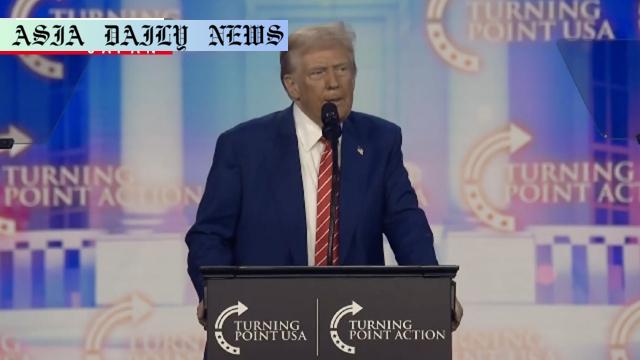Security: US media reports Trump’s revocation of protection for Pompeo and others sparks debate.
Trump has revoked security protection for three key officials.
The officials had supported hardline policies on Iran.
Debates arise around safety risks and personal vendettas.
Trump emphasizes that protection can’t be lifelong.

Introduction
In a surprising and controversial decision, former US President Donald Trump has terminated security protection for three high-profile individuals from his previous administration. The individuals impacted by the decision include former Secretary of State Mike Pompeo, former US Special Representative for Iran Brian Hook, and former National Security Advisor John Bolton. These men played significant roles in Trump’s policy toward Iran during his presidency, particularly in adopting aggressive and hardline stances.
The Revocation of Security
According to reports from leading US media outlets, including The New York Times and the Associated Press, Trump’s decision to revoke their security protection came this week. Pompeo and Hook, identified as potential targets for retaliation due to their roles in shaping the US’s tough approach to Iran, had continued receiving security protection during Joe Biden’s presidency. However, Trump remarked that the protection could not last indefinitely, stating, “When you have protection, you can’t have it for the rest of your life. There are risks to everything.”
Background on the Individuals
Mike Pompeo served as Secretary of State during Trump’s tenure and was a strong advocate for maximum pressure policies on Iran. Brian Hook, who was the special representative for Iran, worked closely on sanctions and diplomatic efforts under the same strategy. Additionally, John Bolton, known for his hawkish views on foreign policy, played a critical role in the administration until he resigned following disputes with Trump. His departure was later followed by a book release that openly criticized the former president.
Impacts of the Revocation
Many experts and observers have expressed concern over the risks that come with the removal of these protections. Given that Iran has previously warned about potential retaliation against US officials involved in the assassination of Qassem Soleimani, the revocation raises questions about the safety of these former officials. Some see this action as a broader attempt by Trump to target figures he perceives as adversaries, particularly in Bolton’s case, who has been outspoken against Trump since his resignation.
Reactions to the Decision
The move has been met with mixed reactions, with critics arguing that it endangers the lives of those who served not only Trump but the country. Some have described it as a step rooted in personal vendettas rather than policy. On the other hand, supporters of Trump’s decision believe that extending security benefits indefinitely is neither cost-effective nor appropriate. This action has reinvigorated debate on how long former officials should receive such privileges and who should bear the costs.
The Broader Context
This decision has also reignited discussions on the broader responsibilities of US presidents toward their former lieutenants, especially those who took actions on their behalf that later made them potential targets. While the US government generally assumes responsibility for ensuring the safety of its officials, including post-service, Trump’s revocation decision has fueled fresh debates about where the line should be drawn.
Conclusion
Trump’s decision to revoke security protection for Pompeo, Hook, and Bolton underscores his distinctive approach to politics and governance, where personal priorities often become hard to disentangle from policy decisions. Whether viewed as a justified move or an act of recklessness, this decision spotlights the unique and often divisive legacy Trump continues to build—where every action sparks a broader national and even global conversation about leadership, loyalty, and responsibility.



Commentary
The Gravity of Security Protection
The recent decision by former President Donald Trump to revoke security protection for Mike Pompeo, Brian Hook, and John Bolton sheds light on a highly sensitive issue within US politics. Security is not just a matter of privilege but also of necessity, particularly for individuals who have faced threats due to their government service. Pompeo and Hook, having championed the administration’s aggressive Iran policies, find themselves in a precarious position as individuals tied to critical decisions that may have made enemies in the global sphere.
Are Politics Driving the Decision?
It is hard to ignore the evident political undertones in Trump’s decision. One cannot help but notice that John Bolton, a vocal critic of Trump post-resignation, is also included in this decision. Is this move a calculated political retaliation, or is it genuinely a matter of policy and resource allocation? Given Trump’s history of settling scores with those he perceives as adversaries, this remains a valid and critical concern.
Long-Term Implications
Revoking protection for former officials also forces the country to consider how it values the service of its government representatives. While it is true that resources are finite, protecting individuals who may have risked their lives or reputations during their tenure should not be trivialized. The potential risks these individuals face, especially from geopolitical adversaries, point to the need for a more systematic and non-partisan approach to extending such protections in the future.
Final Thoughts
Ultimately, this move serves as a microcosm of Trump’s polarizing leadership style. It is both a reminder of the personal nature of his political decisions and a call for the US to reflect on its policies regarding the post-service treatment of its public servants. While debates will persist, the need for clarity and consistency in extending protection to former officials cannot be overstated.